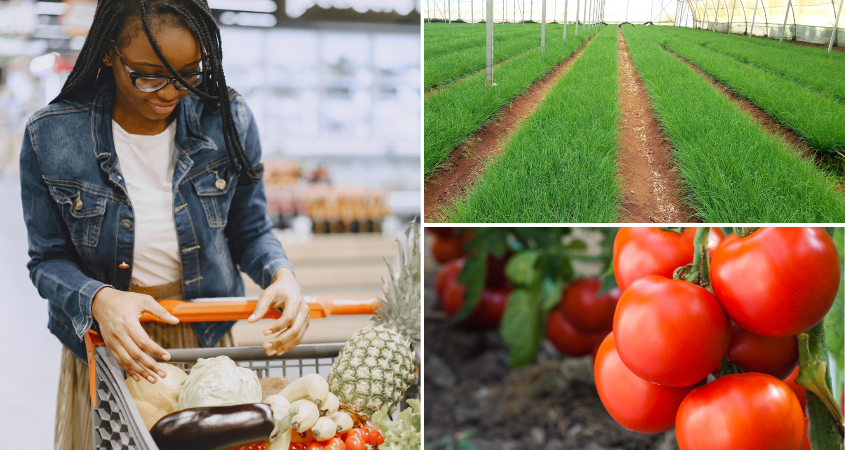
The journey from soil to table is a fundamental aspect of food production, and the health of this journey begins with the very soil in which crops grow. Here’s a closer look at how healthy soil directly contributes to the production of nutritious food:
Healthy soil serves as the foundation for growing nutrient-rich crops. It is a reservoir of essential elements, including nitrogen, phosphorus, potassium, and various micronutrients. As plants draw these nutrients from the soil, they incorporate them into their structure, creating a foundation for wholesome and nutrient-dense food.
Healthy soil fosters robust and resilient plants. When plants are thriving in well-balanced soil, they are better equipped to resist diseases and pests. This resilience reduces the need for chemical interventions, ensuring that the food produced is free from unnecessary chemical residues, further enhancing its health quality.
Micronutrients are vital for human health, and their presence in the soil influences their abundance in crops. Zinc, iron, copper, and selenium, among others, contribute to the overall nutritional value of food. Healthy soil provides an environment where these micronutrients are sufficiently available for plant uptake.
Beyond just the nutritional aspects, healthy soil contributes to the sensory qualities of food. Crops grown in well-balanced and fertile soil often exhibit enhanced flavor, aroma, and stay fresh for longer. This not only makes the food more enjoyable but can also be an indicator of higher nutritional value.
In conclusion, the link between healthy soil and nutritious food production is foundational. By recognizing and prioritizing soil health through regular soil analysis and soil health restoration, we contribute to the production of food that not only satisfies hunger but also nourishes the body with essential nutrients, promoting overall health and well-being.
Soil health is human health
savesoil #soilhealth #soilscience
Order our services and get to know how to improve your soil for better yeilds.